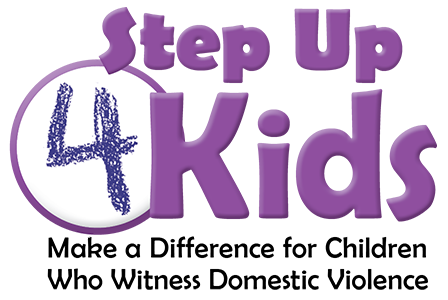 SAFETY ALERT – If you are in danger, call or text 911.
SAFETY ALERT – If you are in danger, call or text 911.

As someone who cares about the children you work with or see in your neighborhood, you can have a powerful impact in their lives. The number of caring adults in a child’s life is the No. 1 predictor of a child’s ability to heal, grow, and be successful in life and in their relationships as they grow. Children need to know they are valued and special, and you will be there to help them if they need or ask for it. Building a relationship with a child can take time, but it will make a long-lasting impact.
 Ask a child what they like about their family.
Ask a child what they like about their family.- Ask a child who they ask for help in their family.
- Ask the child what their family does for fun together.
- Find an opportunity to normalize the fact that lots of families have problems that are difficult and hard.
- Let a child know you are there to help and listen. Assure the child if you can’t help them solve their problem, you will find someone who can. Following up with the child about this will be critical to building trust with the child.
- Help a child find ways to solve conflict in a healthy way by talking through problems with peers and expressing how they feel.
- Be explicit about letting a child with behavioral difficulties know you still like them as a person and care about them.
- Remember, a child who has a parent or caregiver who is violent at home might be especially afraid of getting in trouble.
- Help the child find things they are good at doing.
- Praise and encourage positive behavior and the self-worth of a child with social difficulties as often as possible.
If a child is having behavioral trouble that needs to be addressed and has shared or you suspect there might be violence in the home, be careful in how you let the parent or caregiver know. Ask the parent or caregiver the easiest and safest way to talk to them, because the survivor’s phone and/or email may be checked by the offender.
- Give the parent or caregiver who is a survivor of abuse the number for the 24-Hour Domestic and Sexual Violence Hotline 703-360-7273.
- You, as concerned adult, can also call this Hotline for ideas about how to support a child you are worried about.
- Make every effort to build a trusting relationship with the child and their survivor's parent or caregiver.
- Check in with the child regularly and ask how things are going at home and how they are doing.
- Stay in regular communication with the survivor's parent or caregiver if it is safe for them to do so. They will be more likely to ask for help from someone they connect with regularly.
- Remind the child the abuse is not their fault and not their job to fix.
- Let the child know you are available to talk or listen about anything, not just the violence in their home.
The hotline can provide:
- Emotional support during a crisis.
- Short-term plans for safety.
- Suggestions for family, friends or professionals who want to help a survivor.
- A connection to other services such as:
- The Domestic Violence Action Center (DVAC) gives information, referrals, and support with a plan to help keep a survivor safe. DVAC can help a survivor with the court process and assist with protective orders. DVAC also offers help with housing and economic needs.
- Domestic and Sexual Violence Counseling Services offers 8-10 free counseling sessions for survivors of domestic or sexual violence. Services are also available for teens and children who have experienced domestic violence or who are survivors of sexual abuse.
- ADAPT is an 18-week certified domestic abuse intervention program that teaches learning compassion for self and others. There is a fee for services.
(return to Step Up 4 Kids)

